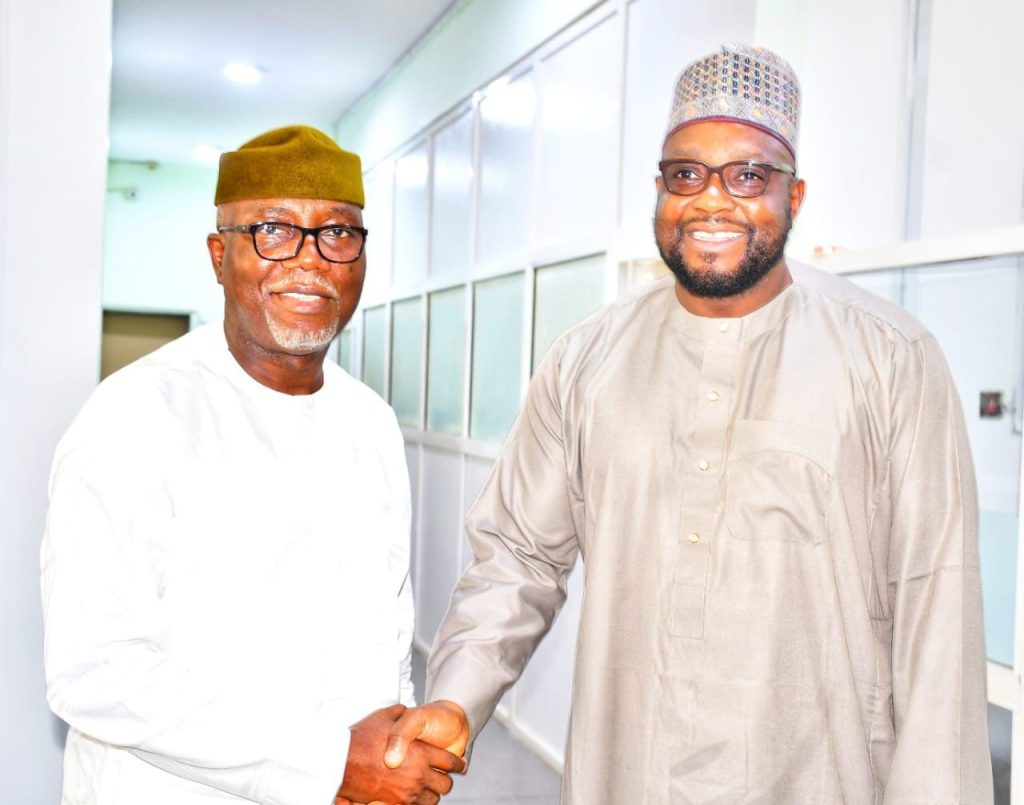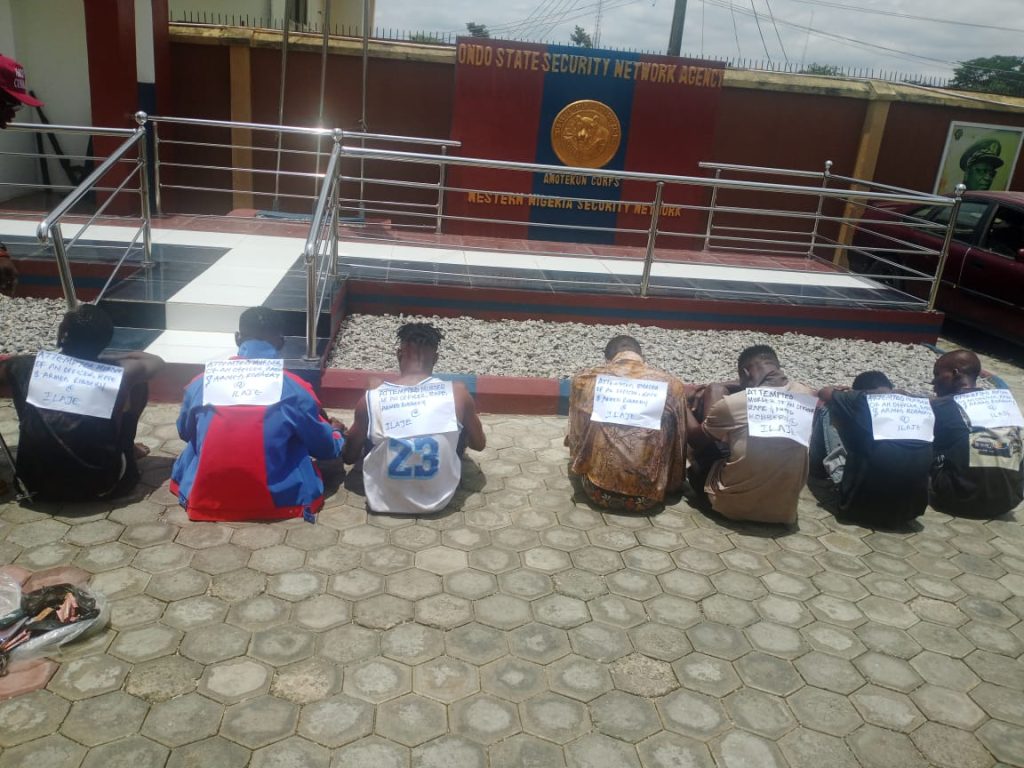Matching words with actions
By Adewale Kupoluyi
|
What has remained topical, not only in Nigeria, but every democratic governance is the place of technology in national development. It is because of the key role played by technology that no discourse can be described as unnecessary or not crucial in the scheme of things.
This brings to the fore, a detailed analysis on how technology can drive the desire change in the quest for nation development, as a As a further step towards attaining national development, as a Professor of Computer Science has made far-reaching suggestion on this issue.
Professor Olusegun Folorunso’s paper was titled, “Information Technology, Knowledge Economy and National Development: The Inseparable Triplets”. He defined national development as the ability of a nation or country to improve the social welfare of the people by providing basic amenities like quality education, potable water, transportation infrastructure, medical care and others, saying this is an attestation to the fact that knowledge generated from the reserve Institutions were meant to promote national development.
The don observed that knowledge economy is an economy in which growth is dependent on the quantity, quality and accessibility of the available information, rather than the means of production by forming the basis for national growth and development in the 21st Century. For him, Information Technology (IT) refers to anything that is related to computing technology, such as networking, hardware, software, the Internet, or the people that work with these technologies. He observed that, there is IT revolution everywhere, not only in Nigeria, but on a global level and most solutions/breakthroughs in businesses and scientific problems in the various fields are achieved through the use of IT.
“It is on this note that my interest, as a Professor of Computer Science, has made me to choose this topic, to open-up discussions on what makes the three constructs inseparable triplets. For development to take place in a nation like Nigeria, the three constructs (triplets) must always be considered without separation by the citizens, governments, policy makers and other stakeholders”, he stated. Despite the global development plans such as the Sustainable Development Goals (SDG), there are still gaps or problems with most African countries including Nigeria. The problems include poverty, food security, poor health, poor sustainability of water and sanitation, lack of peace and inclusive societies and injustice. There is a paradigm shift with performance differential and competitive advantage, which is determined by intellectual, rather than physical resources, such as the production of tangible goods in developed countries towards intangible (knowledge-based assets) or informational goods as well as services.
He regretted that Nigeria was just joining emerging countries, noting that the country’s economy witnessed a negative trend by falling into an economic recession, due to mono-economic system of petroleum that it engaged in rather than diversifying the economy. Professor Folorunso revealed that for a country like Nigeria to emerge as knowledge economy, the following four pillars must be established: (i) institutional structures that provide incentives for entrepreneurship (ii) the use of knowledge, skilled labour availability and good educational systems (iii) ICT infrastructure and access must be made available, and finally, (iv) a vibrant innovation landscape that includes academia, the private sector and civil society must be incorporated. With reference to Nigeria, he said that institutional structures are not fully in place, as there is no synergy between parastatal responsible for the knowledge economy to flourish, regulatory frameworks are absent and there is lack of proper coordination through unified policy implementation and enforcement; while there is always big gaps between industries, government and academia.
The Professor said many graduates of higher education institutions cannot fit into what is obtainable or expected by industries while focusing on people, training and retraining of both lecturers and students are essential for education, skills development and knowledge of ICT. Today, IT encompasses many aspects of computing and technology and the term is more recognizable than ever before. The Information Technology umbrella can be quite large, covering many fields. “For any knowledge to have impact on the development of a nation, research in Information Technology must be focused towards solution to our local problems using existing technologies and tools, thereby encouraging local contents. Investment in human capital is essential in all spheres of human endeavour leading to emerging knowledge economies. With this trend, focusing on applied research in Information Technology (IT) in supporting Economic Recovery and Growth Plan (ERGP) in Nigeria that would go a long way in solving our national problems”, he noted.
Therefore, for IT knowledge economy and national development to be effective, they must be inseparable. There must be holistic synergy between the triplet and they must be well-coordinated. Research in IT must be tailored towards solutions to both local and national problems for national development; government should invest more in IT training of all citizens, as this may create an avenue of recruiting IT experts from Nigeria in terms of outsourcing IT gurus. From reliable source, it pays Microsoft to hire programmers in Asian countries than in Europe and America. This would reduce the level of unemployment among the youths who are 60% of the Nigerian population; the focus of government on entrepreneurship should be supported by government agencies like the Central Bank of Nigeria, Bank of Industry and Nigerian Communications Commission, among others.
He further recommended that there should be IT hub or kiosks for training and supporting essential services in all the 774 local government areas of Nigeria, National Universities Commission should enforce the adoption of the new IT curriculum in most universities in Nigeria with the introduction of the five programmes such as Computer Science, Information Technology, Cyber Security, Software Engineering and active database for IT-based Innovations in Nigeria should be promoted.
The Don admitted that Computer Science was one of the most viable programmes in the University in terms of Internally Generated Revenue (IGR) from postgraduate programmes, while the population of the students to lecturer is not encouraging when compared to other universities for undergraduate programmes. More staff (academic and non-teaching staff) are needed, if we really want the emerging knowledge economies to thrive in Nigeria. He added that, there should be synergy between the Department of Computer Science and all other units involved in Information and Communication Technologies (ICTs) in the university, hence we have to be pragmatic in our thoughts in the management of ICT development in the University.
Moreover, local and international training of both staff and students is essential and should be accorded priority; for our students in Computer Science to be well groomed, there is need for state-of-the-arts computer laboratories for the Department; and the establishment of College of Computing is necessary, as has been done recently in some universities, to support Federal Government’s drive in producing more university graduates in this era of knowledge economies.
He concluded by saying that the topic for the leadership seminar cut across, several disciplines and useful to all – chemist, physicists and mathematician or statistician. He called for the impacting of “our teaching and research on national development. Our research focus should be relevant to current national needs either in line with the Economic Recovery and Growth Plans (ERGP) and the United Nations Sustainable Development Goals. This would support our interest in winning research grants like other Colleges and centres for the university;
Fee participants, stating that the lecture was one of the initiatives that had adopted in providing research breakthroughs and serving as a form for mentorship younger lecturers and students. No doubt, the leadership lecture would go a long way in unfolding the blueprint that should chart the right path towards technological advancement for national development. All we need to do is to get the total commitment of all the actors to make this work. That should be the starting point.
Before we leave the matter for now, there’s need to consider a few points on how to drive technology to the limelight. Sustainable funding, access to financial interventions and collaboration with international donor agencies that are interested in technological advancements.
As we look torward the New Year, there’s need for refocusing and setting loading priorities for Nigeria to take a lead in the global area through technology. That should be our thrust in 2019 and beyond!









